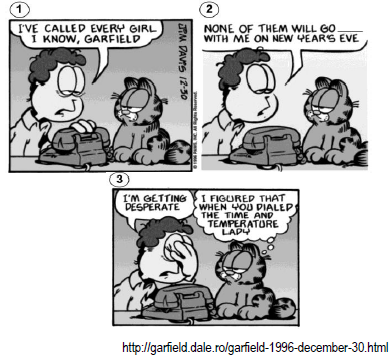Questões de Vestibular de Inglês - Aspectos linguísticos | Linguistic aspects
Foram encontradas 174 questões
The following text refers to question:

Texto
The History of the Motion Picture
Who invented Cinema, the Camera, or Film?

(Adapted from a text available at
http://inventors.about.com/library/inventors/blmotionpictur
es.htm. Accessed on 02/6/2011, at 9h15min)
Choose the correct alternative according to the text.
The “ing” in the word “making” (line 10) forms a
noun, and the “ing” in the word “paying” (line 27)
forms an adjective.
Texto
A brief history of Facebook


(Adapted from a text available at
http://www.guardian.co.uk/techonolgy/2007/jul/25/media.
newmedia. Accessed on 02/6/2011, at 9h10min)
Choose the correct alternative according to the text.
The words “programmer” (line 3), “users” (line
43), and “founder” (line 51) all refer to someone
responsible for performing the actions related to
these verbs.
I. She would like me to speak to her mother.
II. We want he goes to England with us.
III. They asked that she study more.
IV. He would rather to traveling in winter.
V. I think people should avoid speaking too loud in public.

Muitos verbos em inglês consistem em duas partes: um verbo
“base” (tais como bring, take, go, come) acompanhados de uma
preposição ou de uma partícula adverbial (tais como up, down,
out, in, off). No segundo quadro da tirinha, foi retirada a palavra
que acompanha o verbo GO. A preposição que completa o
sentido do verbo na fala do personagem é